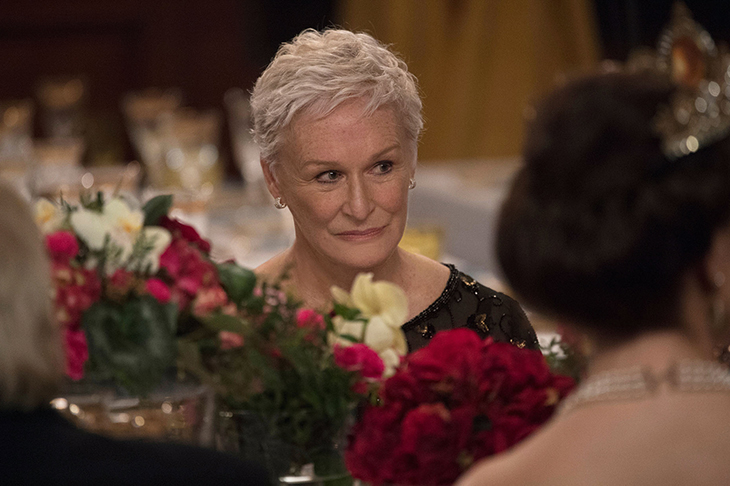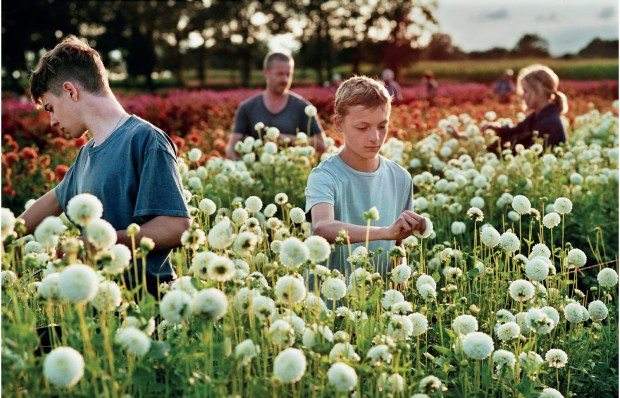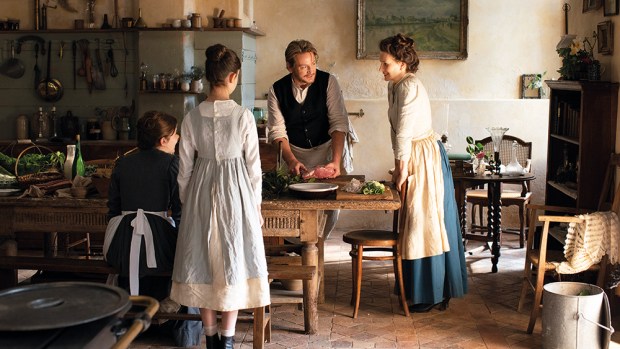The Wife is an adaptation of the Meg Wolitzer novel (2003) and stars Glenn Close. Her performance is better than the film, but it’s such a magnificent performance that it more than carries the day. She is stunning. Close plays Joan Castleman, wife of Joe Castleman (Jonathan Pryce), a literary giant who has always been lionised, and for reasons we’ll discover she is simmering with rage. We’ve seen Close do rage before, but this time the rage is multilayered, nuanced, subtly restrained. No bunnies are boiled, in other words, although having said that, if I were Joan, I’d have boiled Joe’s bunny and whatever else was to hand, like his head. But that could just be me.
Adapted by Jane Anderson and directed by Bjorn Runge, the film is set in 1993, and opens with the news that Joe has just been awarded the Nobel Prize. Joe, who appears to be a Norman Mailer type, or a Saul Bellow type, or a Philip Roth type — so many of these chaps! — is thrilled and so is Joan, it seems. ‘We’ve won the Nobel Prize, we’ve won the Nobel Prize,’ they cry gleefully as they bounce on the bed. They travel to Sweden, where Joe holds court and is fêted while Joan is patronised and offered ‘shopping trips and beauty treatments’. She thinks of everything: what time he should take his pills, where his reading glasses are, what’s next on his schedule. She is the perfect, supportive wife — wasn’t she as gleeful as him when they jumped on that bed? — but also, you now realise, there is something ambivalent about her. You can tell simply by her flashing eyes. Or that look she gives when Joe says that she could never have been a writer herself. When she asks Joe to stop thanking her so effusively in his speeches, is it because it’s too much? Or too little?
The narrative jumps in time via flashbacks, showing us how Joan and Joe first met at college, where he, with only one bad published short story to his name, was her professor and she, the truly talented writer, was his student. Back in the present, the pair have been accompanied on this trip by their son David (Max Irons), who is an unhappy aspiring author hung up on gaining his father’s approval, and they’re all being stalked by Nathanial Bone (Christian Slater), Joe’s unauthorised biographer. He thinks he knows the truth about the Castleman marriage; he thinks he knows that Joan isn’t just about finding Joe’s glasses and reminding him to take his pills. He keeps slyly working on Joan, who is sly in return: drawing him in, then rejecting him. Joe, meanwhile, holds court and laps up the praise and adulation while coming on to a young female photographer. He has never been faithful. His first bestselling novel was The Walnut and he always carries walnuts in his pocket, inscribing little love notes on the shell to give to the latest hottie he wants to seduce. If I’d been Joan, I’d have boiled his walnuts too.
But this is too subtly restrained for that, with Close showing how much can be expressed with the tremor of an eyelid here, a particular smile there. Her performance steadies and deepens what might otherwise be clumsy and shallow. The feminist parable about why she never became an author in her own right is clumsy and shallow. Their son’s Oedipal problems are clumsy and shallow. Pryce is certainly excellent, playing Joe as a mix of narcissism and entitlement tinged faintly by shame. But it’s Close who is transfixing, and who drives a film that is often stagey and inert.
Directed in a no-nonsense, workmanlike way, this often feels like a two-handed play, even though it never was a play. I should also add that while I haven’t read the book I have read about the book, which is said to be a comic satire, and you just don’t get any of that here. I was also baffled by some of the character work. Why, for instance, does Joan pour all her attention into her plainly terrible husband, and almost none into her obviously troubled son? So it’s a better performance than film even if the ending, while shocking, is as ambivalent as Joan herself.
Got something to add? Join the discussion and comment below.
Get 10 issues for just $10
Subscribe to The Spectator Australia today for the next 10 magazine issues, plus full online access, for just $10.
You might disagree with half of it, but you’ll enjoy reading all of it. Try your first month for free, then just $2 a week for the remainder of your first year.














Comments
Don't miss out
Join the conversation with other Spectator Australia readers. Subscribe to leave a comment.
SUBSCRIBEAlready a subscriber? Log in